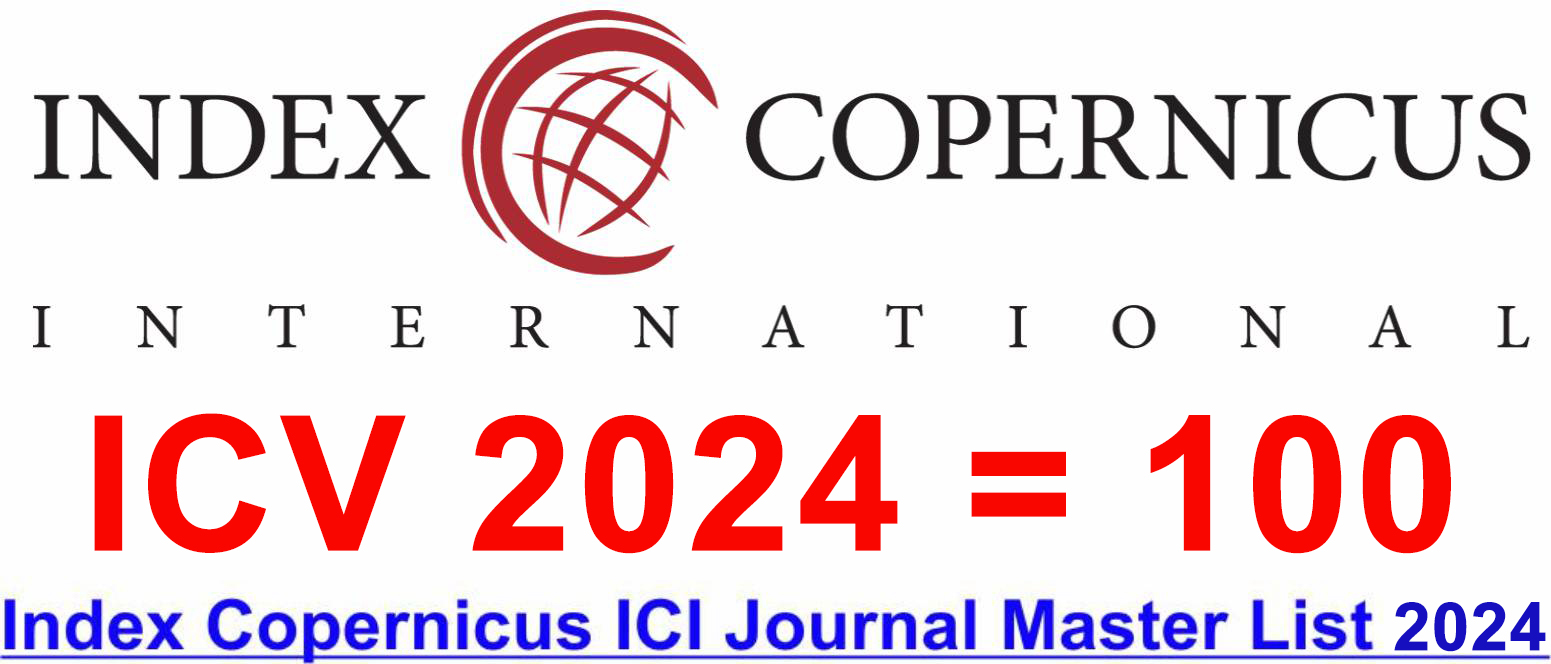A New Approach in Marketing Research: Identifying the Customer Expected Value through Machine Learning and Big Data Analysis in the Tourism Industry
DOI:
https://doi.org/10.46977/apjmt.2022v02i03.004Keywords:
Marketing Research, Customer Expected Value, Big Data, Machine Learning, Tourism IndustryAbstract
With the advent of the digital age and its entry into the business environment, marketing trends have undergone several changes, such as the expansion of data-driven marketing and the digitalization of the business environment that requires further investigation. As a result, the aim of this study is to present a novel approach in marketing research and identify value components among the large volume of customer feedback in virtual networks using machine learning, big data analysis, and a predictive marketing strategy. This research is applied in terms of purpose, qualitative-quantitative (mixed) in terms of method and descriptive-survey in terms of data collection that has used an inductive approach. For this purpose, the Iranian tourism industry and tourist areas of Tehran province was selected as a case study and 9325 comments from customers about hotels used in their travels to Tehran were collected from the Internet between the summer of 2020 to winter 2021 and using "data clustering" and "Association Rules Extraction" methods, the value components were extracted and RapidMiner software and Python programming language were used to perform data mining, text mining and big data analysis processes. In summary, the findings demonstrate that by employing big data analysis and machine learning, the process of "marketing research" can be performed with greater speed, accuracy, and extensiveness, as well as at a lower relative cost. The findings and suggestions of this study are used to inform marketing researchers, as well as to raise the awareness of managers, especially in hotel industry.
Downloads
References
Aaker, D. A. (2005). Marketing Research: Marketing Research: The Pacific Rim Edition. John Wiley & Sons.
Aghaei, M., Ghasemian Sahebi, A., & Kordheydari, R. (2020). The effect of COVID-19 on marketing innovations and corporate social responsibility (case study: active companies in food industry). International Journal on Customer Relations, 8(2), 15-26.
Aghaei, M., Sahebi, A. G., & Kordheydari, R. (2021a). The Effect of Covid-19 on Sustainable Consumption Behavior in Chain Stores. Asia-Pacific Journal of Management and Technology (AJMT), 2(2), 35-51. https://doi.org/10.46977/apjmt.2021v02i02.005
Aghaei, M., Sahebi, A. G., & Kordheydari, R. (2021b). Design and explain the pattern of destination brand value creation strategies in Iranian tourism industry. Journal of Tourism Quarterly, 3(2), 68-97.
Ahmad, A. K., Jafar, A., & Aljoumaa, K. (2019). Customer churn prediction in telecom using machine learning in big data platform. Journal of Big Data, 6(1), 1-24. https://doi.org/10.1186/s40537-019-0191-6
Amado, A., Cortez, P., Rita, P., & Moro, S. (2018). Research trends on Big Data in Marketing: A text mining and topic modeling based literature analysis. European Research on Management and Business Economics, 24(1), 1-7. https://doi.org/10.1016/j.iedeen.2017.06.002
Amirkhani, A., & Mottaqi, V. (2018). Presentation of product production forecasting system on big data using machine learning, National Conference on New Research in Electrical Computer Engineering, Information Technology, Mobarakeh, Isfahan, Iran. https://civilica.com/doc/827992/
An, M.A., & Han, S.L. (2020). Effects of experiential motivation and customer engagement on customer value creation: Analysis of psychological process in the experience-based retail environment. Journal of Business Research, 120, 389-397. https://doi.org/10.1016/j.jbusres.2020.02.044
Beam, A. L., & Kohane, I. S. (2018). Big data and machine learning in health care. Jama, 319(13), 1317-1318. https://doi.org/10.1001/jama.2017.18391
Chong, A. Y. L., Khong, K. W., Ma, T., McCabe, S., & Wang, Y. (2018). Analyzing key influences of tourists’ acceptance of online reviews in travel decisions. Internet Research. https://doi.org/10.1108/IntR-05-2017-0212
Czinkota, M. R., Kotabe, M., Vrontis, D., & Shams, S. M. (2021). Marketing Research and Information. In Marketing Management (pp. 177-235). Springer, Cham. https://doi.org/10.1007/978-3-030-66916-4_5
Dolnicar, S., & Ring, A. (2014). Tourism marketing research: Past, present and future. Annals of Tourism Research, 47, 31-47. https://doi.org/10.1016/j.annals.2014.03.008
Dwivedi, Y. K., Ismagilova, E., Hughes, D. L., Carlson, J., Filieri, R., Jacobson, J., ... & Wang, Y. (2021). Setting the future of digital and social media marketing research: Perspectives and research propositions. International Journal of Information Management, 59, 102168. https://doi.org/10.1016/j.ijinfomgt.2020.102168
Esmailipour, M. (2016). Step-by-step Data Mining Training with RapidMiner. Ati Negar, Tehran, Iran. https://www.adinehbook.com/gp/product/6006004815
Faezi Rad, M., & Pouya, A. (2016). Clustering of online stores from the supplier's point of view with the help of optimizing the number of clusters in the two-stage SOM algorithm. Iranian journal of Industrial Management Studies, 14(43), 109-134. https://dx.doi.org/10.22054/jims.2017.7032
Ghasemaghaei, M., & Calic, G. (2020). Assessing the impact of big data on firm innovation performance: Big data is not always better data. Journal of Business Research, 108, 147-162. http://dx.doi.org/10.1016/j.jbusres.2019.09.062
Ghasemian Sahebi, A., Moshabaki, A., & Khodadad Hosseini, H. (2018). Investigating Brand loyalty through Customer Engagement in Online Brand Communities (A Case study of Instagram users). Brand Management, 5(1), 13-34. https://dx.doi.org/10.22051/bmr.2019.21198.1539
Gil-Soto, E., Armas-Cruz, Y., Morini-Marrero, S., & Ramos-Henríquez, J. M. (2019). Hotel guests’ perceptions of environmental friendly practices in social media. International Journal of Hospitality Management, 78, 59-67. https://doi.org/10.1016/J.IJHM.2018.11.016
Grimmer, J. (2015). We are all social scientists now: How big data, machine learning, and causal inference work together. PS: Political Science & Politics, 48(1), 80-83.
Guo, Y., Barnes, S. J., & Jia, Q. (2017). Mining meaning from online ratings and reviews: Tourist satisfaction analysis using latent dirichlet allocation. Tourism Management, 59, 467-483.
Gupta, M. S., Keen, M. M., Shah, M. A., & Verdier, M. G. (Eds.). (2017). Digital Revolutions in Public Finance. International Monetary Fund. https://doi.org/10.5089/9781484315224.071
Hair Jr, J. F., & Sarstedt, M. (2021). Data, measurement, and causal inferences in machine learning: opportunities and challenges for marketing. Journal of Marketing Theory and Practice, 29(1), 65-77. https://doi.org/10.1080/10696679.2020.1860683
Halawani, F. M., Soh, P. C., & Muthaiyah, S. (2019). The Effect of Social Media on Hotels' Business Performance in the Lebanese Hotel Sector: Effect of Social Media on Hotels' Business Performance. Journal of Electronic Commerce in Organizations (JECO), 17(3), 54-70. https://doi.org/10.4018/JECO.2019070104
Han, J., Pei, J., & Kamber, M. (2011). Data Mining: Concepts and Techniques. Elsevier.
Hastie, T., Tibshirani, R., & Friedman, J. (2009). The Elements of Statistical Learning: Data Mining, Inference, and Prediction. 2nd edition. Springer, Germany.
Heidari, A., Valipour, A., & Bakhtiyari, B. (2017). Marketing research trend in Iran: An analytical review. Management Research in Iran, 21(3), 97-119.
Hsu, C. W., Chang, Y. L., Chen, T. S., Chang, T. Y., & Lin, Y. D. (2021). Who Donates on Line? Segmentation Analysis and Marketing Strategies Based on Machine Learning for Online Charitable Donations in Taiwan. IEEE Access, 9, 52728-52740. https://doi.org/10.1109/ACCESS.2021.3066713
Huang, J. C., Ko, P. C., Fong, C. M., Lai, S. M., Chen, H. H., & Hsieh, C. T. (2021). Statistical Modeling and Simulation of Online Shopping Customer Loyalty Based on Machine Learning and Big Data Analysis. Security and Communication Networks, 2021. https://doi.org/10.1155/2021/5545827
Jiang, Y., & Hong, F. (2021). Examining the relationship between customer-perceived value of night-time tourism and destination attachment among Generation Z tourists in China. Tourism Recreation Research, 1-14. https://doi.org/10.1080/02508281.2021.1915621
Kassambara, A. (2017). Practical Guide to Cluster Analysis in R: Unsupervised Machine Learning (Vol. 1). Sthda. Kauffmann, E., Peral, J., Gil, D., Ferrández, A., Sellers, R., & Mora, H. (2020). A framework for big data analytics in commercial social networks: A case study on sentiment analysis and fake review detection for marketing decision-making. Industrial Marketing Management, 90, 523-537. http://dx.doi.org/10.1016/j.indmarman.2019.08.003
Kim, J. J., Ariza-Montes, A., & Han, H. (2021). The Role of Expected Benefits towards Smart Hotels in Shaping Customer Behavior: Comparison by Age and Gender. Sustainability, 13(4), 1698. https://doi.org/10.3390/su13041698
Krafft, M., Sajtos, L., & Haenlein, M. (2020). Challenges and opportunities for marketing scholars in times of the fourth industrial revolution. Journal of Interactive Marketing, 51, 1-8. https://doi.org/10.1016/j.intmar.2020.06.001
Kumar, M. R., Venkatesh, J., & Rahman, A. M. Z. (2021). Data mining and machine learning in retail business: developing efficiencies for better customer retention. Journal of Ambient Intelligence and Humanized Computing, 1-13. https://doi.org/10.1007/s12652-020-02711-7
Kumar, V., & Reinartz, W. (2016). Creating enduring customer value. Journal of Marketing, 80(6), 36-68. https://doi.org/10.1509%2Fjm.15.0414
Lansley, G., & Longley, P. (2016). Deriving age and gender from forenames for consumer analytics. Journal of Retailing and Consumer Services, 30, 271-278. https://doi.org/10.1016/j.jretconser.2016.02.007
Lee, E. B., Kim, J., & Lee, S. G. (2017). Predicting customer churn in mobile industry using data mining technology. Industrial Management & Data Systems.
Leong, L. Y., Hew, T. S., Ooi, K. B., & Lin, B. (2019). Do electronic word-of-mouth and elaboration likelihood model influence hotel booking?. Journal of Computer Information Systems, 59(2), 146-160. https://doi.org/10.1080/08874417.2017.1320953
Liu, P. (2021, March). Research on Customer Value Measurement. In 6th International Conference on Financial Innovation and Economic Development (ICFIED 2021) (pp. 74-78). Atlantis Press. https://dx.doi.org/10.2991/aebmr.k.210319.014
Ma, L., & Sun, B. (2020). Machine learning and AI in marketing–Connecting computing power to human insights. International Journal of Research in Marketing, 37(3), 481-504. https://doi.org/10.1016/j.ijresmar.2020.04.005
Mansouri Moayyed, F., kordheydari, R., & Ghasemian Sahebi, A. (2020). The Role of Knowledge Brokers in Developing of technical knowledge marketing model for Knowledge-Intensive Business Service. Management Research in Iran, 24(2), 35-60. http://mri.modares.ac.ir/article-19-31309-fa.html
Miklosik, A., & Evans, N. (2020). Impact of big data and machine learning on digital transformation in marketing: A literature review. IEEE Access, 8, 101284-101292. https://doi.org/10.1109/ACCESS.2020.2998754
Moro, S., Rita, P., & Vala, B. (2016). Predicting social media performance metrics and evaluation of the impact on brand building: A data mining approach. Journal of Business Research, 69(9), 3341-3351. http://dx.doi.org/10.1016/j.jbusres.2016.02.010
Raguseo, E., Neirotti, P., & Paolucci, E. (2017). How small hotels can drive value their way in infomediation. The case of ‘Italian hotels vs. OTAs and TripAdvisor’. Information & Management, 54(6), 745-756. http://dx.doi.org/10.1016/j.im.2016.12.002
Raschka, S., & Mirjalili, V. (2017). Python Machine Learning: Machine Learning and Deep Learning with Python. Scikit-Learn, and TensorFlow. Second Edition ed.
Saleem, F., Khattak, A., Ur Rehman, S., & Ashiq, M. (2021). Bibliometric analysis of green marketing research from 1977 to 2020. Publications, 9(1), 1. https://doi.org/10.3390/publications9010001
Sanayei, A. (2017). The Fourth Industrial Revolution, Isfahan, University Jihad, University of Isfahan, Iran. https://isma.org.ir/book-4th_industrial_revolution/
Sánchez-Franco, M. J., Navarro-García, A., & Rondán-Cataluña, F. J. (2019). A naive Bayes strategy for classifying customer satisfaction: A study based on online reviews of hospitality services. Journal of Business Research, 101, 499-506. https://doi.org/10.1016/j.jbusres.2018.12.051
Shalini, S., & Lal, K. (2016, April). Improved pseudo-association rules technique. In 2016 International Conference on Computing, Communication and Automation (ICCCA) (pp. 890-895). IEEE. https://doi.org/10.1109/CCAA.2016.7813842
Sheehan, N. T., & Bruni-Bossio, V. (2015). Strategic value curve analysis: Diagnosing and improving customer value propositions. Business Horizons, 58(3), 317-324. https://doi.org/10.1016/j.bushor.2015.01.005
Soltani Zanozi, M. (2019). A Study of the Role of Big Data in Marketing and Business, The Second National Conference on New Thoughts in Business Management, Tehran, Iran. https://civilica.com/doc/950800/
Suarniki, N. N., & Lukiyanto, K. (2020). The role of satisfaction as moderation to the effect of relational marketing and customer value on customer loyalty. International Journal of Innovation, Creativity and Change, 13(4), 108-122.
Tukiran, M., Tan, P., & Sunaryo, W. (2021). Obtaining customer satisfaction by managing customer expectation, customer perceived quality and perceived value. Uncertain Supply Chain Management, 9(2), 481-488. http://dx.doi.org/10.5267/j.uscm.2021.1.003
Wang, Y., Deng, Q., Rod, M., & Ji, S. (2021). A thematic exploration of social media analytics in marketing research and an agenda for future inquiry. Journal of Strategic Marketing, 29(6), 471-491. https://doi.org/10.1080/0965254X.2020.1755351
Weiss, S.M., Indurkhya, N., & Zhang, T. (2015). Fundamentals of Predictive Text Mining. Springer. https://doi.org/10.1007/978-1-4471-6750-1
Xie, G., Qian, Y., & Wang, S. (2021). Forecasting Chinese cruise tourism demand with big data: An optimized machine learning approach. Tourism Management, 82, 104208. https://doi.org/10.1016/j.tourman.2020.104208
Xu, M., David, J. M., & Kim, S. H. (2018). The fourth industrial revolution: Opportunities and challenges. International Journal of Financial Research, 9(2), 90-95. https://doi.org/10.5430/ijfr.v9n2p90
Yen, C. H., Teng, H. Y., & Tzeng, J. C. (2020). Innovativeness and customer value co-creation
behaviors: Mediating role of customer engagement. International Journal of Hospitality Management, 88, 102514. https://doi.org/10.1016/j.ijhm.2020.102514
Zhou, L., Pan, S., Wang, J., & Vasilakos, A. V. (2017). Machine learning on big data: Opportunities and challenges. Neurocomputing, 237, 350-361. https://doi.org/10.1016/j.neucom.2017.01.026
Published
How to Cite
Issue
Section
Copyright (c) 2021 Asia-Pacific Journal of Management and Technology (AJMT)

This work is licensed under a Creative Commons Attribution-NonCommercial 4.0 International License.



















